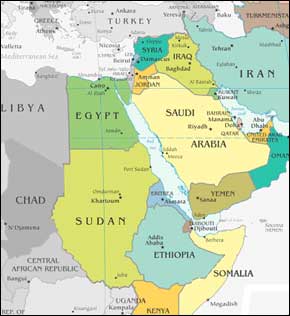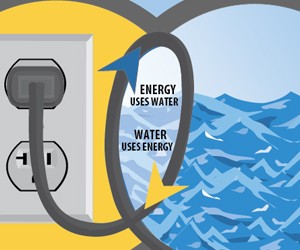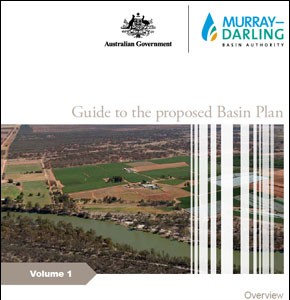Egypt’s Assets in Ethiopia May Help Ease Tensions Over Nile River
The African country reaches out to its Nile Basin neighbor.
Egypt’s increased investments in Ethiopia this year will help boost cooperation between the two Nile Basin states, Egyptian Minister of Irrigation and Water Resources Mohamed Nasreddin Allam said, the Global Arab Network reported.
 Allam said during a recent rally in Port Said that Egypt’s investments in Ethiopia have totaled $1 billion this year and are expected to double in 2011. He stressed the necessity for collaboration between the two countries, which are locked in a struggle over Nile River water rights.
Allam said during a recent rally in Port Said that Egypt’s investments in Ethiopia have totaled $1 billion this year and are expected to double in 2011. He stressed the necessity for collaboration between the two countries, which are locked in a struggle over Nile River water rights.
Allam also addressed the need to protect the river, adding that the Higher Council for Nile Protection would convene within days to consider a new policy to avoid the dangers of transporting hazardous materials by water. This may help prevent events like a Sept. 11 spill of 100 tons of gasoline into the river.
Egypt has repeatedly criticized Ethiopia for increasing its use of the river’s water. The upstream country is planning hydroelectric schemes on the Blue Nile, a major tributary of the river, along with irrigation projects that will help it to grow its way out of famine, and supply itself and neighbors with electricity.
Egypt has recently been trying to make friends in the Nile Basin, though, as a regional pact among five other basin states threatens to challenge the country’s colonial-era control over the river.
In a recent three-part series, National Public Radio explores the clashes over who owns the fresh water in the basin. While Egyptians have long laid claim to the river’s waters, and two colonial-era agreements give downstream neighbors Egypt and Sudan the major portion, other upstream states have in recent years argued for more equitable shares.
As Circle of Blue reported in May and July, Egypt and Sudan—together with Burundi and the Democratic Republic of Congo— are refusing to ratify a proposed treaty by the Nile Basin Initiative, a partnership among the Nile riparian states. Government officials from Egypt and Sudan said they would sign an agreement only if it protected their current use, set by a 1959 treaty that allocated two-thirds of the annual flow and a veto over upstream development projects to Egypt.
The five other Nile Basin countries—Ethiopia, Kenya, Rwanda, Tanzania and Uganda—decided to move forward with the treaty, which has been 11 years in the making.
According to NPR, Egypt draws more water from the Nile than any other country, while contributing nothing to its flow.
Egyptians have become more thrifty with their share of the river’s waters in recent years, initiating conservation measures that have driven per-capita water use down to 700 cubic meters a year, less than half of what the average U.S. resident uses each year. New irrigation measures and a scaling back from water-hungry crops like wheat and rice are also helping to reduce the nation’s water use.
Still, others within and outside Egypt say the country can and should do more. Ana Cascao, a specialist in Nile water affairs at the Stockholm International Water Institute, told NPR that any cultivation of wheat in the desert amounted to “hydro-suicide.”
Others bristle at what is perceived as Egypt’s sense of entitlement to the lion’s share of the Nile’s waters.
“We cannot convince our people that that water belongs to Egypt or Sudan or another country,” John Nyaro, Kenya’s chief negotiator among the Nile basin countries, told NPR. “If a Maasai is crossing the river Mara with his cattle, can he convince those cows, ‘No, you cannot drink this water. This water belongs to Egypt’?”
Sources: AFP, Global Arab Network, National Public Radio
Read more about the Nile River Basin on Circle of Blue.








The upstream nations should go on with whatever projects they may desire utilizing their water resources. Egypt has been entertaining war threats and the divide and rule tactics of the colonial era for too long. Golf courses and rice plantations are environmental sins that Egypt should acknowledge and amend. And it should once and for all accept the fact, that it has no veto power over natural resources of other countries.
What is the moral of this story?
Is the minister saying the upstream countries, mainly Ethiopia, will keep their mouth shut because Egyptian companies are investing in their country? Why mix apples and oranges?
Investment in Ethiopia is one thing but the equitable usage of the Nile is another. And it is not the number of investments that Egyptian companies put in Ethiopia that will ease the struggle over Nile River water rights but only when Egypt recognizes that the current usage of the water is not right by any standards and consent with the rest of the Nile basin countries that are trying to make use of their share of the river.
Why someone foreign in his right mind put in place such treaty which ignores the rights of upstream countries without no knowledge of them? Why are THEY silent when peopel in upstream of Nile die in millions caused mainly by draught?
Now help fix this unfair treaty/mess you created.
Negotiation 11 years in the making?this is mainly because Egypt does not want to see any agreement reached.What Egypt is saying is that:let me eat and you watch.Forgotten is the fact that Egypt has tried every means available to destabilize Ethiopia for many deacdes.Now that game is over ,they are trying to tell us we are investing in your country and thefore the water should flow uninterupted even if it means you have to starve.The time has come for egypt to read the writting on the wall.
Thanks Henock….. “feyel wediya kezemezem wodehi… alu”….. Two different things i think !!!…. I think the justice for Ethiopian’s right is different than investment which is entierly for the benefit not only for Ethiopia…. but We need JUSTICE…….a REAL JUSTICE……